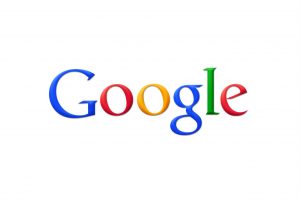After three years of rigorous investigation, the Competition Commission of India (CCI) has announced its landmark decision[1] against
The Commission has analysed the conduct of Google in two separate markets of “Online General Web Search Services in India” and “Online Search Advertising Services in India”, wherein both, Google was found to be undoubtedly dominant. Keeping in mind that intervention in digital markets by a regulatory authority should be “targeted” and “proportionate” lest it stifles innovation, CCI examined the various innovative features introduced by Google in the design of its results page and the effect of these new product designs on the web publishers as well as the users. Though CCI found no problem with Google’s Universal Results (groups of results of a specific type of information like news, images, local, etc.), OneBoxes (display box showing the exact answer to user query from one web publisher selected by Google) and Commercial Shopping Unit (sponsored unit on top/right of results page showing advertisements with images from which Google earns revenue). Google was found to be on the wrong side of law with respect to the display of Universal Results at fixed 1st, 4th and 10th positions prior to October 2010. The majority was of the view that such fixed positions were not based on relevance and therefore, may have misled the users. However, the minority noted that since Google has self-corrected such conduct long back, any need for regulatory intervention is obviated.
Next, in regard to Google Flights Commercial Unit, the majority has found contravention by Google as firstly, prominent placement of Flights Unit on results page pushes down third-party travel verticals (like MakeMyTrip, Goibibo, etc.) which may be more relevant for the users leading to unfairness to both travel verticals as well as the users; and secondly, since clicking on “search flights” link in this Commercial Unit takes the users to Google Flights vertical page, it amounts to unfair diversion of traffic by Google to its specialised search vertical. On the other hand, the minority on this count has observed that Commercial Flights Unit is nothing but an enhanced ad format and it is clearly distinguished by labelling the Unit as “sponsored”. Also, there is no evidence on record to establish any actual misleading or degradation or user diversion as a result of such Unit as was the case with Google Shopping Commercial Unit in the European Union. Further, since the Flights Unit does not offer any booking service but is only a comparison service, it cannot as such be compared with third-party travel verticals at all.
In the other market of online search advertising services, CCI has analysed three issues and found no problem in either of them. With regard to Google’s advertising platform of AdWords, CCI has opined that Google shares more than sufficient information with the advertisers to enable them to assess the performance of their ads and it does not discriminate with its House Ads. In respect of multihoming, CCI has found that AdWords API terms and conditions do not in any manner restrict the advertisers from transferring their ad campaigns on multiple platforms. In regard to allegations of trade mark law violation by Google allowing third parties to bid on trademarked keywords or using trademarked terms in AdTexts, CCI has very astutely restricted its jurisdiction noting that the same falls within the regulatory domain of the civil courts and an “isolated transactional imperfection” on account of “delay in whitelisting” cannot amount to competition law violation by Google.
Lastly, two more conducts of Google have been analysed — one with regard to Google’s distribution agreements and other with regard to Google’s direct intermediation/syndication agreements. In respect of distribution agreements which Google has with for instance Apple, whereby Google is the default search service provider in Safari web browser, CCI has found no “imposition” as default browser can be changed by the users at will. In regard to direct intermediation/syndication agreements, which enable website publishers to place Google services on their web pages, CCI has observed that Google offers two types of AdSense programs — search intermediation which enables web publishers to place Google search bar on their websites and ad intermediation which enables publishers to show Google ads on their websites, both search ads (AFS — AdSense for Search) and display ads (AFC — AdSense for Content). In direct ad intermediation, no contravention was found; however, in direct search intermediation, the restriction placed by Google on inclusion of any substantially similar search bar by web publishers on their websites has been found to be violative of the law. However, the minority, on this count too, has dissented and observed that since such restriction is not available in the online search intermediation agreements entered into by Google which are openly available to all web publishers, but is only put in the directly negotiated search intermediation agreements, the choice of the web publishers (consumers) is not forcefully restricted but rather such restriction is accepted at will. Further, since no independent “search intermediation/syndication services” market has been analysed, the finding given by the majority seems a bit presumptive.
Hence, as per the minority, no case of contravention by Google on any issue, is made out. However, the majority, taking Google’s revenue from its India operations into account, has imposed a penalty @ 5% of its average turnover, amounting to Rs 135.86 crores upon Google. Google, being an intricate part of every internet user’s life, this decision[2] of CCI is bound to have a wide impact. Since the matter involves high stakes, it is likely to go in appeal as well, may be even from both sides. However, as for now, CCI, vide this order, has shown exemplary understanding of the technical issues at hand, and yet again proven its balanced judicial prudence.
[1] Matrimony.com Ltd. v. Google LLC, 2018 SCC OnLine CCI 1.
[2] Ibid.

